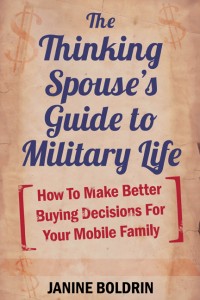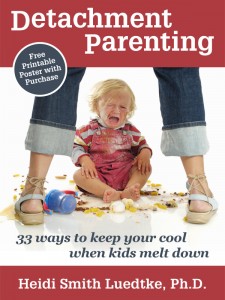
Your genuine gratitude blesses the past and portends the future.
You didn’t know that gratitude could be such a powerful tool? Then keep reading!
We writers always have a lot of people to thank when the holiday season rolls around every year. Some of us get overwhelmed while others get excited. But anything worth doing is worth doing thoroughly, that’s what I always say.
In other words, I think we can all stand to get more creative with our gratitude. I hope this holiday season, you won’t merely thank the folks who help you with your bottom line. There are so many people to appreciate in the writing business. And this is the perfect time of year to do it.
Here are some ideas to help you brainstorm your Most Appreciated of 2012 list. Feel free to copy it into a doc, fill it out, and use it as a checklist:
People who helped you get where you are today
Editors, copyeditors, and fact-checkers, who make your work better
Publishers, who make your work available to a wider audience
Sales people whose efforts keep your work distributed, promoted, and circulating
Bookstore owners and librarians
Interns, yours or other peoples’
Photographers and designers, who make you and your work look professional
Agents or lawyers, who represent you and negotiate contract points for you
Bookkeepers and CPAs, who keep the IRS at bay
Website designers and tech consultants
Cover artists, interior layout designers, and e-book formatting folks
Marketing people and publicists, who get the word out about you
Experts and authors you used as sources once or more
Teachers, coaches, advisers, and mentors, both actual and virtual, whether they know they inspire you or not
Support services that make it possible for you to write (babysitter, housecleaner, landscaper, etc.)
Authors you interview or review (or who help you in any way)
People who consistently take the time to review you or your work
Event organizers, administrators, and hosts
Association administrators, leaders, newsletter editors, volunteers who helped you
People who refer you and your work to others
Writing groups, old friends from the trenches, and new acquaintances you are excited to get to know better
Consultants or professional service people
Students or clients, especially returning
People who create services and products that your business depends on
Your social networks, both as an entirety and key individuals within
Community members, real or virtual, who go out of there way to buzz your work
Readers and fans who have gone above and beyond, especially repeat
Media folks you pitch and serve
Friends and family who actively help you or cheer you on
Any other people I am not thinking of who make a difference in your career and your year
Feel free to add suggestions to this list in the comments. Also consider all the possibilities in space and time. For time, go back as far as last time your consciously thanked people. For space, consider local folks, regional folks, national folks, and international folks, so you don’t overlook anyone.
And food for thought, you might to want to think of who you are not feeling particularly thankful towards. You don’t have to thank them right now. Thankfulness is authentic, honest, gratitude-driven action. So don’t feel bad because you do not feel grateful towards someone specific. Ask yourself why and don’t stop asking until you figure it out. If you can’t figure it out by yourself, get some help figuring it out.
Thinking over who you are not thankful towards and considering why you are not feeling thankful towards them can also help you plan who and what and how to serve next year. If I were you, I’d go with continuing to serve the people you feel most genuinely grateful towards and looking for more people like them. Win-win-win is your most prosperous direction.
If you are serving people you resent, for whatever reason, the relationship is probably not going to pay off in the long run for either of you. Worse, the whole thing might blow up in both of your faces. Not because you are a bad person or because the other person is a bad person, but because that’s what resentment does. It’s like a slow time bomb ticking away just under the surface.
But if you can see your pet peeves as a source of valuable information for the future, instead of an ax to perpetually grind, your understanding can open up a whole world of freedom and possibilities for the future.
See my ongoing list of thank yous, I am continually updating: https://christinakatz.com/thanks/
I am thankful for you. Thank you for reading. Happy Thanksgiving.
Like this post? Then please subscribe to The Prosperous Writer Blog and sign up for The Prosperous Writer Newsletter, so you won’t miss any important updates.
~ Photo by hellojenuine.












